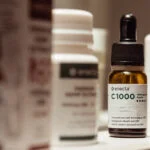What Happens During Alcohol Rehab?
Anyone who suffers from an addiction to alcohol should seek treatment to overcome their addiction.
The level of treatment required to overcome alcohol use disorder (AUD) is not a “one size fits all” solution and is wholly dependent on the level of addiction and the symptoms of withdrawal that each person has.
The best way to reach and maintain sobriety is by completely detoxing your body from the effects of alcohol.
This is often a lengthy process and for the best and most long-term results, it is often best paired with rehabilitation treatment.
What is alcohol detox?
Alcohol detox is the process of flushing alcohol from your body. Detoxing from alcohol will result in withdrawal symptoms ranging from mild to severe depending on how severe your addiction is.
This happens because your brain has become used to releasing chemicals to combat the sedative effects caused by consuming alcohol. Once you stop consuming alcohol, your brain still releases these chemicals which can cause you to go into shock.
Some withdrawal symptoms you might experience are:
- Stress or anxiety
- Depression
- Mood swings and irritability
- Cold sweats
- Hallucinations
- Restless sleep
- Nausea, vomiting and diarrhoea
- Shakes
- Confusion
Do I need to detox?
If you find that you need alcohol in order for your body to feel normal, then the likelihood is that you need a detox program. Similarly, if you find yourself craving alcohol most days or counting down the hours and minutes until you can get a drink, then you will likely need to think about detoxing.
Can I detox without medical help?
It is not recommended to quit “cold turkey” without medical intervention. This is because some alcohol withdrawal symptoms can be life-threatening depending on the severity of the addiction.
Getting the help of a medical professional throughout your detox program will ensure that you have the medications necessary to help you through any withdrawal symptoms, as well as the mental and psychological help to better prepare you for continuing to fight your addiction long after the detox program is finished.
Completely detoxing from alcohol can take up to two weeks. And while that may not sound like a very long time, it can seem a lot longer when you are going through withdrawal symptoms.
This can make it very tempting to turn to alcohol to combat the withdrawal symptoms.
It can be very challenging to give up alcohol, and even those with the strongest willpower can find it difficult.
Assigning a friend or family member to take care of you through the detox is a good idea, however, it is worth noting that this will be a challenging time for anyone looking after you as well – and they may not have the medical expertise to properly care for you if you get very sick.
Should I seek residential treatment for alcohol recovery?
A residential treatment facility is the best way to safely recover from alcohol use disorder.
Within a specialised facility, you will have direct access to any medical help you need while combating withdrawal symptoms, as well as the psychological help to better understand your addiction and the triggers that might cause you to turn towards alcohol.
There is an option to receive this treatment while still living at home. This involves visiting a clinic regularly and keeping in touch with your assigned key worker who will make sure you are keeping on track with your recovery.
What does alcohol rehab involve?
Once you and your healthcare provider have established that you need rehab to overcome your alcohol use disorder, you will have a physical health exam and be prescribed any medication required to help with withdrawal symptoms.
These will usually be a form of benzodiazepines that can be addictive, so over time, your prescription will lessen until you are completely non-dependent on any drugs or alcohol.
You will be allocated a key worker, who will work with you to create a personalised recovery plan.
Through the implementation of this plan, you will learn to control your urges, recognise your triggers and deal with any emotional or psychological issues that led to your alcohol dependency.
If you are partaking in a residential rehab facility, you will be given a timetable so you know what to expect of your time there.
Your time will be made up of attending group therapy sessions, one to one counselling sessions and calming practices such as yoga or art classes.
If you are not attending a residential facility, you will be given a new appointment to attend to see your healthcare provider or key worker again so they can track your progress. You may also be given an opportunity to speak to a counsellor throughout your rehabilitation.
Many services now offer phone support throughout your recovery as well, meaning that your key worker will phone you or video chat with you regularly throughout your recovery process.
Whether you choose to recover at home or check in to a residential facility, you will not be left to recover alone and the help and support you need will always be available to you.
Don’t put off getting help
Admitting that you need help may be daunting, but it takes a great deal of strength and courage to do so.
The longer you put off getting the help you need, the more difficult it will be to go through the stages of recovery.
Contact your healthcare provider as soon as you feel you have a problem to discuss your options.





